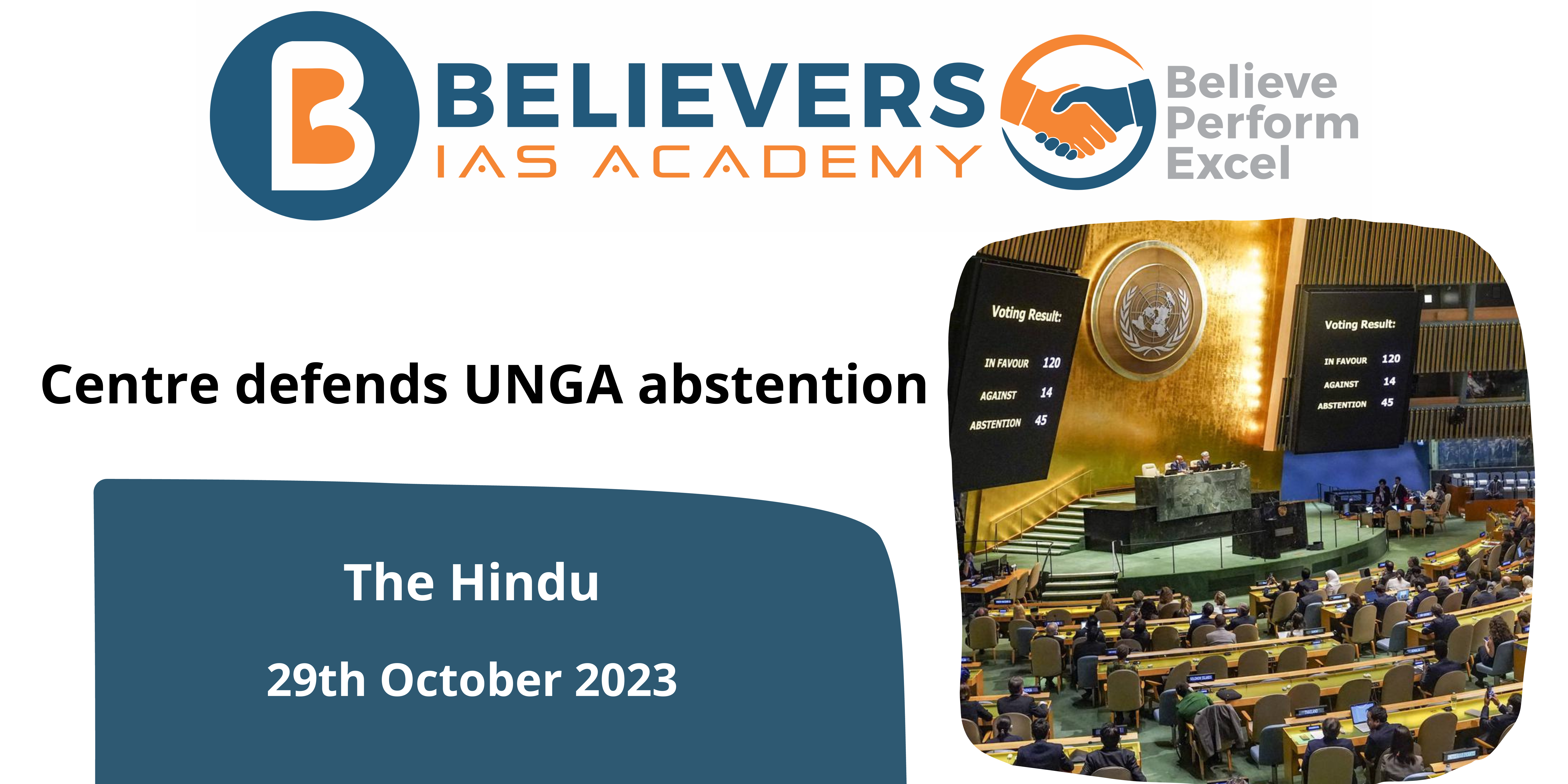Centre defends UNGA abstention
What is the situation in Gaza?
- Gaza is a 140-square-mile enclave located between Israel and Egypt. It is home to about 2 million Palestinians, making it one of the world’s most densely populated areas.
- Gaza’s situation is dire:
- Humanitarian crisis: The death toll from Israeli airstrikes continues to rise, and thousands face famine.
- Water scarcity: Food is being rationed, and there isn’t enough water to go around. In Gaza, the amount of water accessible for drinking, cooking, and washing is currently estimated to be three litres per person per day.
- Communication blackout: Palestinians are completely cut off from the outside world due to a communication blackout.
- Fuel scarcity: There is a shortage of fuel.
- Medical supplies: There are no basic life-saving drugs available.
- The Israeli-Gaza confrontation is on its 22nd day. Water, electricity, fuel, medical supplies, and food have all been shut off by Israel. The Israeli army is intensifying its air raids in Gaza and “expanding their activity” in the Gaza Strip.
What is the stand taken by the UN on the conflict?
- The United Nations (UN) has denounced civilian violence in Israel and Palestine. The UN Secretary-General has denounced all acts of violence against people, including terror. UN experts have denounced Israel’s deliberate and lethal assault against civilians, as well as Gaza’s violent and indiscriminate attacks on Palestinian civilians.
- The United Nations has also:
- Warned against indiscriminate or excessive force against Gaza
- Raised concerns about the Israeli authorities’ call for a “full siege” of the territory
- called for an immediate cease-fire in the region
- Palestinian collective punishment was condemned.
- Demanded that all parties uphold and respect their international humanitarian law duties.
- Parties were urged to save civilian lives.
What was the resolution all about?
- Resolution Specifics: The resolution, submitted by Jordan on behalf of the Arab League and co-sponsored by over 40 countries, was carried with 120 votes in favour, 14 votes against (including the United States and the United Kingdom), and 45 abstentions, including India.
- The content of the resolution: The accepted resolution condemned all forms of violence against Palestinian and Israeli citizens, including terrorism and indiscriminate attacks. It did not, however, expressly mention the Hamas terror acts earlier this month.
- The resolution’s title was “Protection of civilians and upholding legal and humanitarian obligations.”
What was India’s Stand in the UN General Assembly Vote?
- Abstention Reason: India refrained from voting because the resolution did not directly condemn the terror acts in Israel on October 7. The Indian government expressed worry about the resolution’s final text’s exclusion of references to these attacks.
- India’s Position on Terrorism: The Indian government has stated unequivocally that there can be no equivocation on terrorism, and its position is defined as “steadfast and consistent.”
- India’s Explanation of Vote (EoV) Position: The EoV of India called for the condemnation of the attacks as well as the prompt and unconditional release of hostages. India stressed that terrorism knows no borders and asked the international community not to accept explanations for terrorist attacks.
What are the observations made by other countries?
- France: France voiced worry about the absence of allusions to the October 7 assaults and the hostages taken. In contrast to its Western partners, France voted in favour of the resolution. Nothing justifies human suffering, according to France, and all victims, whatever of country, deserve sympathy.
- Canada: Canada presented an amendment to the resolution that would “unequivocally reject and condemn Hamas terrorist attacks in Israel beginning on October 7, 2023,” as well as call for the release of captives. This amendment was defeated because it lacked the required two-thirds majority.
- US and UK: The United States and the United Kingdom were among the 14 countries that voted against the resolution. This suggests that they had reservations about the content or language of the resolution.
Conclusion
In summary, the article examines India’s decision to abstain from voting on a resolution linked to the Gaza crisis at the United Nations General Assembly, expressing concerns about the resolution’s lack of unequivocal condemnation of particular terror incidents in Israel. The opposition criticized the move, but the Indian government maintained its constant stance on the Israel-Palestine conflict.




